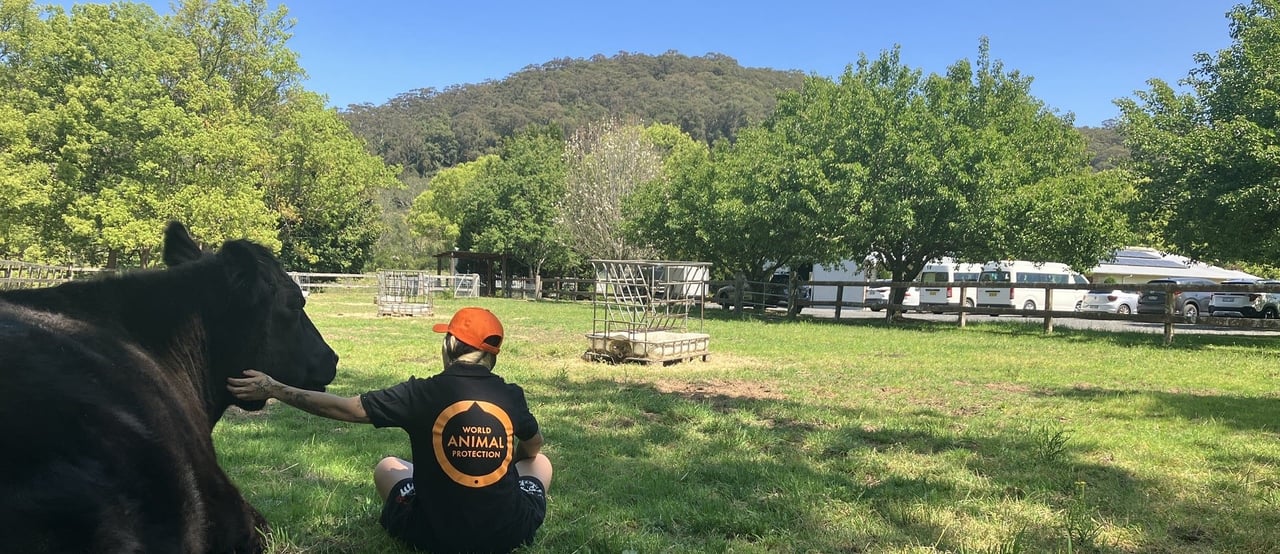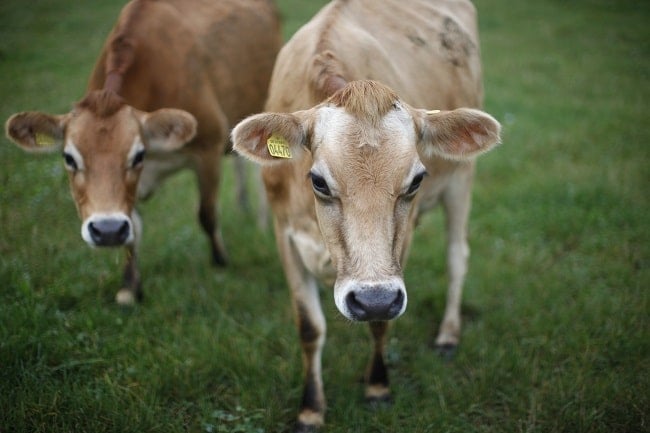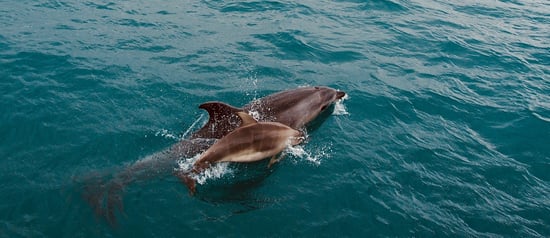Animal cruelty in farming
We need to break the cycle of suffering in our global food system as it is not healthy for anyone.

Cows are highly social and sensitive animals. To communicate with each other they have 333 unique sounds and bond by licking one another. Cows love interaction and feel happiest and safest in a crowd. That’s why they stick together in herds!
Cows are part of the Bovidae family, also known as cattle. Cattle refers to a whole gang of different horned and hoofed mammals including yaks and bison. However, the name “cow” is technically only for females and males are “bulls”.
Cattle are naturally curious, clever and even fun loving. In research studies they have been trained to follow sound to find food in a maze. They are also known to love playing. When given the space they will run with each other, play chase and enjoy toying with a ball.
Did you know they have a sight range of 300° while humans only have a range of 180°? This is because their eyes are set on the sides of their head. This allows them to see what’s coming up beside and behind them with ease. This range increases to almost 360° when they are grazing.
They have an amazing sense of hearing that is very similar to a dog, which is why loud noises can stress them. This is paired with an excellent sense of smell. They can catch a whiff of an odour from up to 8km away. All of this is to help them better detect danger and possible attacks.

Cattle are intensely farmed due to the high demand for milk and beef. Around the world, 1 billion cows exist in farms for these two products. This pressure for more product has resulted in the cruel process of industrial farming and live exportation.
The world’s demand for cattle has resulted in a rise in live exportation on ships, a cruel and stressful process for the animal. These arduous journeys can last for up to 35 days. Thousands have died in transit - if they do survive, they face unnecessary rough handling and can be killed while still conscious.
Globally the number of dairy factory farms is increasing. These animals are being restricted to hard floor barns also known as “feedpads”- deprived of sunlight, grass and wide open spaces. Instead of their natural grazing diet, they are fed high energy grain-based feed. This is because farmers wish to stop the cows “wasting” energy on walking and grazing.
This is a poor excuse for a practice that causes a great deal of pain and stress for the animals. Cows are natural grazers that roam through the day as a herd – restricting them to a confined space is unnatural. The physical effects of being kept in these barns includes:
World Animal Protection is working hard for a better future for cows around the world. In India illegal dairies are subjecting cattle to crowded, unsanitary conditions and a lack of fresh food and water. We are working to spread the word on these illegal farms that are flouting animal cruelty laws.
We commissioned a survey of 3,000 dairy consumers in over six Indian cities. 90% of the participants agreed farms breaking the law and not meeting welfare requirements should be shut down. Three out of four said they would pay up to 10% more if it meant higher welfare conditions for animals.
World Animal Protection is now petitioning India’s Ministry of Agriculture and Farmers Welfare to phase out these local dairies. Through this, higher welfare standards will be enforced to protect cows and buffaloes all over the country.
Australia remains a significant player in the exportation of live cattle. We’re calling for the government to transition to more humane alternatives – including expanding the plant protein sector, and working to export semen and embryos for breeding, as opposed to live animals. This will help ensure cattle are protected from the appalling experience of live transport and inhumane slaughter overseas.

We need to break the cycle of suffering in our global food system as it is not healthy for anyone.
News
Cows are highly sensitive, social, and unique animals who remember people who have been unkind to them. Another fascinating fact, cows have such brilliant eyesight that they can nearly see everything around them without moving their heads!
News
Farm animals around the world are causing devastating damage to the environment by burping and farting out immense amounts of greenhouse gas. We must eat less meat to slow down global warming and improve animal welfare.

Join thousands of animal lovers fighting to protect wildlife and give farmed animals good lives. Sign up now to receive emails with all the ways you can help.
Sign up